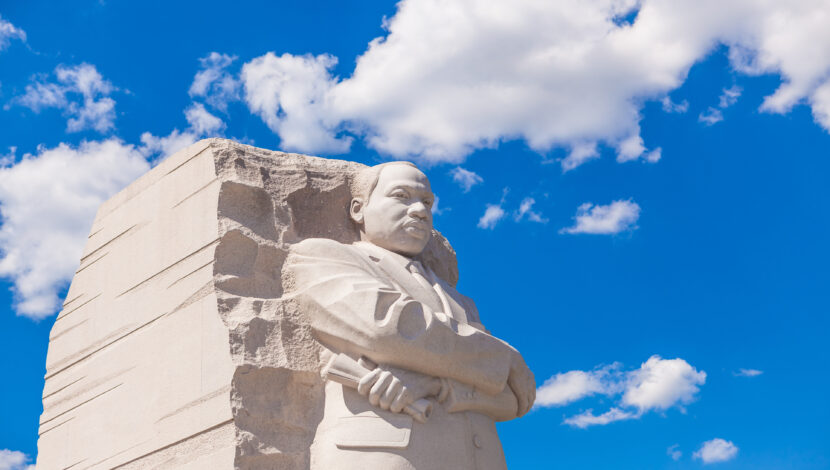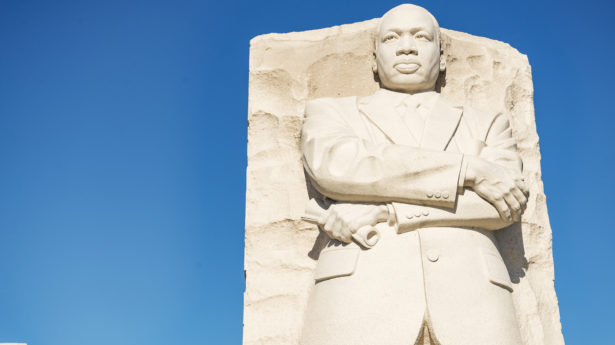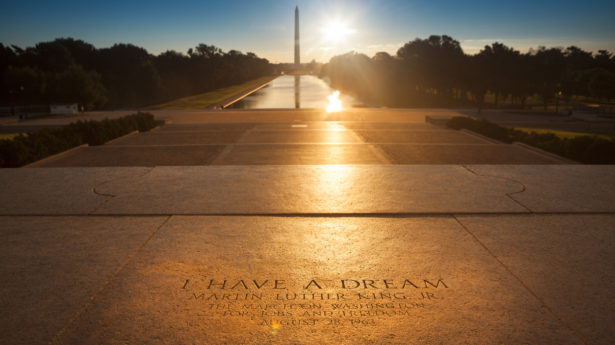The Unitarian Universalist Service Committee advances human rights through grassroots collaborations.
MLK’s Legacy Weaves Environmentalism, Racial Justice

By UUSC Staff on January 15, 2023
Dr. Martin Luther King, Jr. told us that if we could not learn to live together as brothers and sisters, then we would perish as fools.
King was assassinated in 1968 in Memphis, Tennessee, where he was protesting in solidarity with Black sanitation workers. His death arrived just a few years before the environmental movement found its footing and before the language of environmentalism found its way into the mainstream.
However, the language of environmentalism echoed King’s words about civil rights and he often used the language of nature to help people connect to the movement for civil rights, even in his final sermon before he died:
“Well, I don’t know what will happen now. We’ve got some difficult days ahead. But it doesn’t matter with me now. Because I’ve been to the mountaintop. And I don’t mind. Like anybody, I would like to live a long life. Longevity has its place. But I’m not concerned about that now. I just want to do God’s will. And He’s allowed me to go up to the mountain. And I’ve looked over. And I’ve seen the promised land. I may not get there with you. But I want you to know tonight, that we, as a people will get to the promised land. And I’m happy tonight. I’m not worried about anything. I’m not fearing any man. Mine eyes have seen the glory of the coming of the Lord.”
— Dr. Martin Luther King, Jr., I’ve Been To The Mountaintop, April 3, 1968
Uprooting Environmentalism’s Race Problem
The beginning of the environmental movement slightly overlapped with the tail end of the Civil Rights Era.
Many in the environmental movement leveraged the language and non-violent tactics of the Civil Rights Era, so much so that it might appear now that it picked up where the civil rights movement left off.
However, the conservation and environmental movements—before, during, and after the Civil Rights Era—were usually exclusionary along racial lines. Often, initiatives were expressly racist.
The movement continues to dig itself out from under the weight of these legacies as we try to prepare ourselves for the turbulent future fueled by anthropogenic (human made) climate change (which was, in itself, fueled by colonialism and economic systems that only viewed the earth as a resource and not as a reflection of our own consciousness).
The faster we uproot all forms of racism from the current environmental movement, the more rapidly solutions and solidarity will arrive and the wiser they’ll become.
This is one reason why UUSC supports Indigenous communities and grassroots organizations addressing climate change throughout small island developing nations (SIDS).
A Non-Violent Relationship With the Environment
King was a man who believed all life to be interrelated.
The quest for peace consumed him towards the unknown end of his short career. He knew that civil rights at home were connected to civil rights in Vietnam, that war abroad hid war at home, and that the conditions for peace required peace from everyone.
The systems and ideologies that harmed the people Dr. King sought to protect are the same systems and ideologies perpetuating violence against the Earth. As his contemporaries like Thich Nanh Hanh ultimately did, it’s difficult to imagine that Dr. King would be talking about much else other than environmental justice if he were alive today.
Image Credit: iStock—Marilyn Nieves

